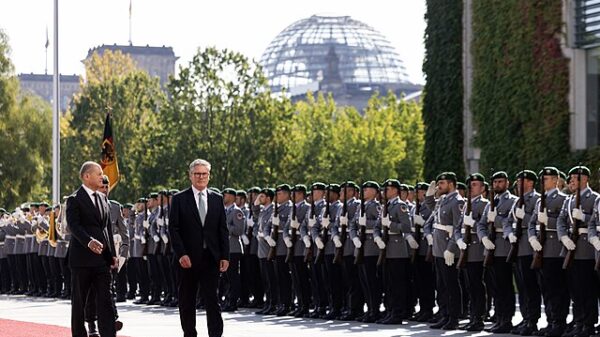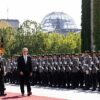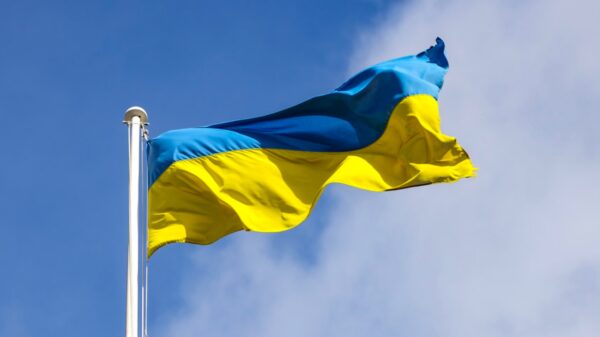Staff Writer Perla Lepage comments on the recent criticism of the annual World Economic Forum (WEF) in Davos.
Have global conferences lost their momentum? Some would certainly say so, with increasing criticism that these events are nothing more than a display of networking. Amid the Israel-Hamas war and Russian invasion of Ukraine, global tensions are greater than ever and, with the advent of greater media interactions between nations, can the World Economic Forum still be said to be relevant?
This past January, the Swiss village of Davos in the canton of Graubünden, once again, hosted the annual meeting of the WEF. Every year since 1971, the conference addresses a different theme that encompasses ongoing global issues. This year, 3,000 leaders from over 125 countries gathered to target the theme of ‘Cooperation in a Fragmented World’ – with the hope of progressing towards an interconnected global economy, stabilising democracy and regulating artificial intelligence.
The WEF has historically been seen as a productive platform for the birth of cooperation and partnership. The forum has served as a platform for dialogue, creating a sense of security by hindering the development of tensions. An example which is engraved in people’s minds was the WEF’s role in helping to end apartheid in South Africa. In 1992, the Swiss forum served as the symbolic platform where Nelson Mandela and President F. W. de Klerk of South Africa brokered the country’s unified future.
The WEF had previously displayed its usefulness when it prevented the escalation of armed conflict in 1988 between Turkey and Greece. The Executive Chairman, Klaus Schwab, was successful in bringing both sides to Switzerland, which led to the signing of the Davos Declaration to stabilise relations. It was precisely in such instances, averting localised disagreements that could have escalated into an international dispute, that the WEF was proven to be of the utmost necessity.
The integration of refugees into local societies and economies has been an obstacle for many nations. This is where the WEF’s Refugee Employment Alliance has fostered multi stakeholder involvement to successfully increase support for the economic integration of refugees all over the world. The alliance drew on the example of Ukrainian refugees integrating the labour market following Russia’s invasion in February 2022. The forum thus harnessed the success of Ukrainians in this area to aid current displaced populations and prepare for the future.
However, the WEF has not been immune to its share of criticism, such as promoting the interests of powerful nations. This critique is particularly salient in light of smaller nations’ exclusion from the annual gathering. The increasing awareness that the superpowers and most prominent corporations are the ones dominating the political agenda of the conference is something that the WEF must devise a solution for should it want to continue attracting attention.
As looming tensions between nations on opposing sides of the Israeli-Hamas war keep escalating, countries such as Turkey have made their position clear, as they were absent at this year’s conference. Following Hamas’ attack on 7 October 2023, Turkish President Recep Tayyip Erdoğan made his stance explicit by supporting the rights of Palestinians and refraining from a full-blown criticism of Hamas, but also resisting (thus far) the possibility of cutting ties with Israel.
In disagreement over the WEF’s organiser’s stance on the war, Erdoğan stopped Treasury and Finance Minister Mehmet Simsek from attending the annual meeting. Although it was stated by a spokesperson from the organisation that this year’s conversations would extensively focus on the situation in the Middle East, Turkey’s no-show reflects the forum’s unpredictability.
Alongside this, political figures such as US president Joe Biden and Russian president Vladimir Putin pulled out of this year’s conference, leaving France’s President Emmanuel Macron as the sole G7 leader. A rapidly decreasing attendees’ list suggests the plummeting geopolitical relevance of the WEF.
Yet it was a world leader who did attend, Javier Milei of Argentina, whose words most clearly showcased the reasons for the WEF’s malaise. In a fiery speech at the book-end of the conference, Milei argued that the laissez-faire agenda he has promoted in Argentina is fit-for-purpose in the modern era. He launched an exceptionally vitriolic attack on socialism, accusing Western leaders of having “abandoned their model of freedom”. While Schwab acknowledged that some view Milei’s methods as “radical”, he also stated that Milei has created “a new spirit to Argentina”. But this kind of bellicose rhetoric has contributed extensively to the WEF’s unpopularity in the eyes of the world.
The question remains: will the WEF prove resilient or will it succumb to polarisation, where nations advance their increasingly contrasting interests? It has proven useful in the past, helping broker peaceful agreements to political conflict and uncertainty. One thing is certain: if the WEF wants to thrive, it must alter its image as an elitist gathering in the Swiss snow-caps by ensuring that its members do not use the conference simply as a platform to promote their own agendas.
















